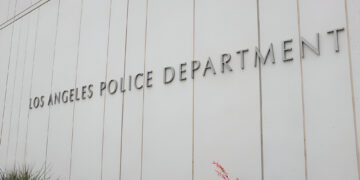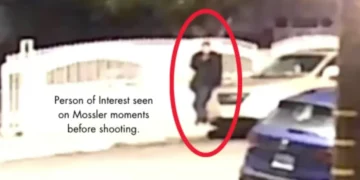LOS ANGELES, CA – California state officials are alerting drivers to a rise in text-based toll payment scams targeting motorists across the state. The scam, designed to appear as a legitimate toll payment request, aims to steal personal and financial information from unsuspecting victims.
According to a news release issued by California Attorney General Rob Bonta’s office, scammers are sending text messages falsely claiming that recipients owe toll charges or express lane fees. The messages include a link to what appears to be a legitimate tolling agency website but is instead a fraudulent site used to collect banking or credit card details.
“Scammers have become skilled at imitating legitimate companies, sometimes even linking to legitimate websites,” said Attorney General Rob Bonta. “Text-based toll charge scams are prevalent right now, and knowing what to look for can keep consumers safe against these tactics.”
State officials emphasized that the majority of these scam texts claim to be associated with FasTrak, a widely used electronic toll payment system in California. The fraudulent messages often direct victims to a fake website claiming to be operated by The Toll Roads, the Transportation Corridor Agencies responsible for toll services in Orange County.
Authorities clarified that FasTrak does not send payment requests via text messages.
“The Toll Roads and other California tolling agencies do not send text messages to non-account holders,” officials stated in the news release.
How FasTrak Works
FasTrak, which operates on toll bridges, express lanes, and roadways throughout California, allows drivers to pay tolls electronically without stopping at toll booths. Legitimate notifications about account balances or charges are typically sent via email or official mobile apps but never through unsolicited text messages with embedded links.
Steps to Verify Toll Notifications
Drivers who use The Transportation Corridor Agencies’ services—which operate The Toll Roads in Orange County—are advised to verify the authenticity of any messages by logging directly into their accounts through the official website at www.thetollroads.com or via the agency’s app.
Officials provided a list of legitimate tolling agencies and their verified websites to help drivers identify authorized sources of information:
- The Toll Roads
- Bay Area FasTrak
- Metro ExpressLanes
- 91 Express Lanes
- 405 Express Lanes
- Riverside Express
- SANDAG
How to Respond to a Suspected Scam
Authorities outlined key steps for motorists who receive suspicious text messages related to toll payments:
- Do not click any links included in the message.
- Delete the text immediately to prevent accidental interaction.
- Visit the official website of your toll service provider to check the status of your account.
- Report the scam to the Federal Trade Commission (FTC), the FBI’s Internet Crime Complaint Center, and the California Attorney General’s Office.
For victims who may have already fallen prey to the scam, authorities recommend taking immediate steps to secure their accounts and personal information. This includes changing passwords, contacting financial institutions to dispute unauthorized charges, and monitoring bank statements for suspicious activity.
Protecting Against Future Scams
Officials stressed the importance of remaining vigilant and skeptical of unexpected text messages requesting personal information. Motorists are encouraged to double-check any communications that demand payment and to use official apps and websites for account management.
The Attorney General’s Office said it is actively investigating reports of these scams and working with law enforcement agencies to track down perpetrators.
Meanwhile, California drivers are urged to stay informed and report any suspicious communications to authorities as efforts to combat fraudulent activity continue.
Further updates on the investigation and resources for victims are expected to be provided by state officials in the coming weeks.

























